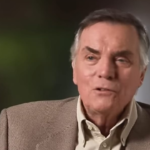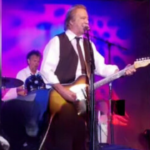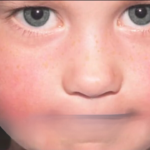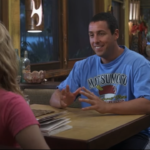Porter:The remarkable achievement of “The Rich People Have Gone Away” is astounding.
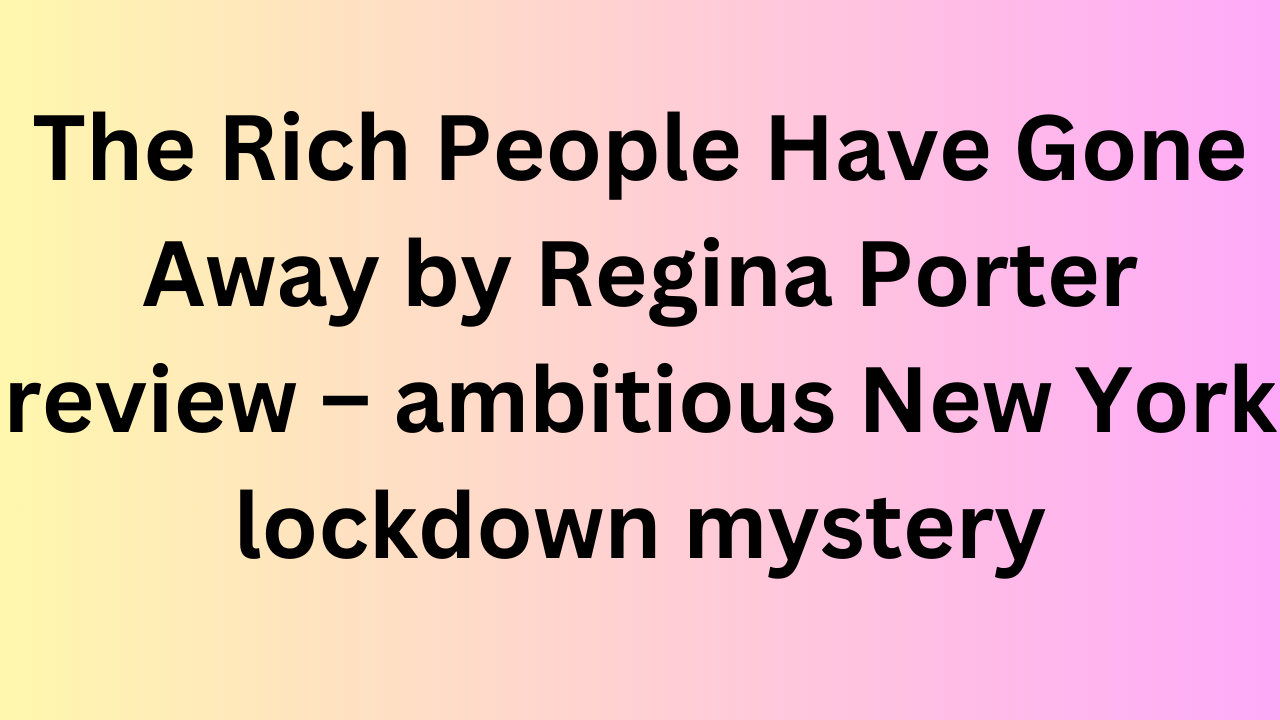
Regina Porter’s COVID-19 novel is an incredible work of fiction.
We’re all able to recognize the signs by now: a slight tickling in the front pages, some congestion along the dust jacket, and a tingling sensation in the back.
You are now in the final stages of writing a fully developed COVID novel.
The only treatment is to isolate yourself socially for the next three or four days till it passes. You won’t mind quarantining, though, if it’s as good as Regina Porter’s “The Rich People Have Gone Away.”
That’s an especially amazing feat in light of the fact that the COVID-19 pandemic is already being packed away in the memory chest alongside the 1918 influenza outbreak, only four years after the virus first made its way to these shores. However, Porter’s clever new book, which is a sequel to her 2019 first, “The Travelers,” is audacious enough to push aside the amnesia that is beginning to set in.
She brings back memories of frantically cleaning the kitchen, taking eerie strolls through the quiet streets, tensing up when someone entered the elevator with us, debating with bare-faced jerks who conducted their own homework, searching Google for “where to find toilet paper,” hearing the term “intubation” for the first time, and then discovering that there weren’t enough ventilators.
Of course, I would advise you to stay away from “The Rich People Have Gone Away” like the plague if all it offered was a walk past a row of chilled morgue trucks. However, Porter is accomplishing a great deal more in this unexpectedly enjoyable and difficult book. She utilizes the covid pandemic as a prism to separate the mixed wavelengths of American society by holding it up to the light.
Though the virus itself may not have been discriminatory, it was unfortunately experienced in many different ways by different types of people. Some of that insight is evident in the title, which alludes to the fear that caused wealthy people to flee cities. However, she is also curious about the relationship between covid and racism, an even more ancient and dangerous illness.
April 2020: The first few chapters of “The Rich People Have Gone Away” Theo Harper enjoys having sex in the doorways of his ninth-floor apartment building in Park Slope because it is so deserted. That’s a good indicator of the man’s liminal state and brazenness. Porter’s narration has a dual tone that both holds Theo at the end of the rope and directs his egotism.
Because of this style, he is both disgusting and fascinating. He tries to embrace and repress his birth tale as a bisexual New York snob from Iowa. Furthermore, despite having a mixed lineage of non-White ancestors, including Native Americans and Africans, he identifies as a White man. He believes that these forebears account for “thirty percent” of his genome, or the wild component.
Theo keeps an open marriage—a fancy euphemism for a serial cheater—and works as a “aesthetic advisor,” which is another word for an interior decorator. Darla, his expectant wife, is a professional bassoonist who loses her job when COVID closes the Great White Way. During the initial stages of the lockdown, she has occupied herself by crafting her own masks and disinfecting the apartment using environmentally friendly cleaning agents.
(Her spouse surreptitiously applies “industrial-strength cleansers” afterward.) They had their first doorway connection two years ago and have been together ever since. Aside from “The Star-Spangled Banner,” Porter observes that “They are not wealthy, but they have wealth,” which is arguably the greatest patriotic statement one can make.
These two pregnant parents, tired of the hustle and bustle of the city, head to the family’s vacation house in the Catskills from Brooklyn to take a break. In a chapter titled “In the Wood Where I Am Black,” which is so excellent that I read it aloud again just to enjoy the symphonic perfection of it, that plan goes astray.
There are hints of Porter’s past aspirations to become a playwright throughout the book, but particularly in this passage. She’s very aware of the little conversational nuggets that have the potential to blow up a whole.
Theo and Darla argue while hiking in the forest close to their cottage. At first, it’s simply petty arguments, but soon neither of them can control the discourse. In an attempt to startle or agitate Darla, Theo declares, “My great-great-grandfather was black.” It is implied that their child may come into the world in a few months and be darker than Darla anticipates or desires.
An explosion of posturing and racial fear erupts from the fight. “I don’t have a prejudiced bone in my body,” asserts Darla. A brawl breaks out on the precipice; hot tea is hurled; Darla disappears into the forest.
“The Rich People Have Gone Away” appears to be following the rhythm of a home thriller for a few beats, but Porter quickly undermines that tension. She wants to create a more contemporary version of “The Winter’s Tale,” but the storyline she develops, which is so aware of women’s and people of color’s agency, could never fully commit to Shakespeare’s romantic restoration.
The way this book darts down blue highways and careens off the main drag is its most remarkable feature. Never before have I read a book that so confidently jumps from story to story and character to character. Porter is not kidding when she says, “So many things are happening at once.” I kept asking myself, “Why are you telling me this?” but after reading a few paragraphs, I realized that I would follow this writer wherever they went out of greed.
Stick to the plot! Some readers may find that formal flexibility annoying, but if you stick with it, you’ll grow to love Porter’s style. She is opposing the destructive idea that some people are central and most are peripheral, which is the core fiction of both fiction and our own self-absorbed existence. She is not just being distracted.
Porter moves deftly between the lives of a multitude of different individuals, each perfectly faithfully depicted in their own sphere, as the search for Darla unfolds in a media landscape enthralled with stories of missing wealthy White women. A Black high school student named Xavier is temporarily residing in Theo’s building while his mother fights for her life in the hospital.
And Ruby, Darla’s closest friend, a Black woman who is attempting to figure out how to survive in a deserted city with her new restaurant influenced by Japanese cuisine. And Roland, the caretaker of the summer villa with the lazy eye who continues to see his deceased relatives. And Yvonne, the expensive detective on a mission to track out Darla. Additionally…
However, merely enumerating these individuals and their diverse narratives falls short of capturing the fractal nature of this book. Porter never backs down from a challenge or overlooks a backstory. If not orchestrated, this would be a chaotic and riotous jumble of squirrels that would take us out of the Real Story’s frame. However, under Porter’s direction, “The Rich People Have Gone Away” resolves into a powerful illustration of how class and race exacerbate the wide range of human experience.
